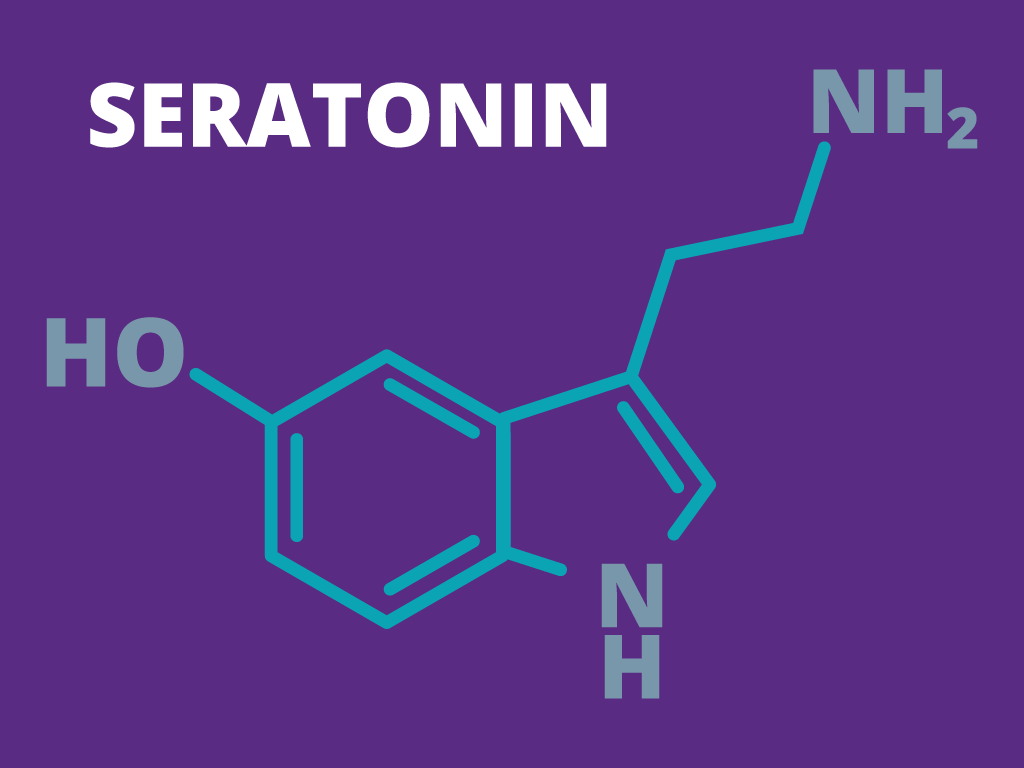Serotonin Syndrome: Risk Factors and Prevention Strategies
Serotonin syndrome is a potentially dangerous condition that may cause serious complications if not addressed and treated. This syndrome is most connected to certain classes of drugs that are used to treat mental illness and some illegal drugs. With larger numbers of patients being prescribed drugs to treat anxiety, depression and other mental illnesses, there has also been an increase in serotonin syndrome cases. It’s important to understand the risk factors for this condition and to take steps to reduce your chances of getting serotonin syndrome.

What Causes Serotonin Syndrome?
When your body has too much serotonin in the system, it can lead to serious problems and even death. Serotonin is a chemical that is naturally produced by your nerve cells and helps your body with different functions, such as sleeping, digestion, breathing and wound healing. People with naturally low levels of serotonin may have higher incidences of depression and anxiety. They may also struggle with suicidal thoughts, obsessive-compulsive disorder, insomnia, aggression or PTSD.
Serotonin syndrome happens typically when there are higher levels of serotonin than normal. Doctors often prescribe medications to slightly raise the serotonin level in the body for conditions like anxiety and depression. Additionally, other medications, such as drugs to treat migraines or some pain medications, may also raise serotonin. When patients combine these types of medications or take more than they are supposed to, it could lead to a dangerously high level of serotonin, or serotonin syndrome.
The people who are most at risk of developing serotonin syndrome are patients who have been newly prescribed a medication that increases serotonin levels. Additionally, when a provider increases the dosage of a current medication that may also put patients at risk of developing this condition. When someone takes more than one medication that impacts their serotonin levels, this may also impact their risk of developing this syndrome. Herbal supplement users and illegal drug abusers may also be at a higher risk of developing serotonin syndrome.
Symptoms of Serotonin Syndrome
The symptoms of serotonin syndrome may develop a few hours after ingesting the combination of medications or a higher than normal dose of illegal drugs or prescription medications. Depending on the amount of drugs taken and the dosage, symptoms can vary from mild to serious. Here are some of the most common symptoms of serotonin syndrome:

- Restlessness and agitation
- Confused state
- Headache
- Nausea
- Diarrhea
- Vomiting
- Dilated pupils
- Excessive sweating
- Rapid pulse
- High blood pressure
- Shivering
- Goosebumps
- Fever
- Muscle twitching
- Loss of muscle control
- Lack of coordination
- Irregular heart rhythm
- Seizure
- Unconsciousness
For serious symptoms that are life-threatening, it’s important to call 911 right away to get treatment. Because some of these symptoms are similar to many other illnesses and conditions, it’s important to get an accurate diagnosis and treatment.
Life-Threatening Complications
For serious cases of serotonin syndrome, patients and their caregivers need to act quickly. Although it is rare for serotonin syndrome to cause hospitalization or death, it’s vital to take the symptoms seriously. Mortality may range from 2% to 12% for severe serotonin syndrome, depending on the type of drugs taken and the metabolism of the patient. If patients don’t seek quick treatment for life-threatening symptoms, they could end up in kidney failure. Serious symptoms may also lead to coma or death if left untreated.
Drugs Associated with Serotonin Syndrome
Several classes of drugs are associated with serotonin syndrome. By themselves, these drugs increase serotonin levels to acceptable ranges. The problems most often occur when two different classes of drugs are accidentally combined, or if a patient intentionally or accidentally overdoses on the drug. Drug abusers of illegal and prescription medications may also experience higher risks of serotonin syndrome. Here are the common medications associated with this condition:
Antidepressants
Antidepressants work by increasing serotonin levels to regulate mood. Some of the most popular antidepressants are selective serotonin reuptake inhibitors or SSRIs. Common SSRIs include Lexapro, Prozac, Paxil, Luvox and Zoloft. Serotonin and norepinephrine reuptake inhibitors or SNRIs, like Cymbalta, Pristiq and Effexor are also in this class. Additionally, monoamine oxidase inhibitors or MAOIs, like Nardil and Marplan are used as antidepressants. Other antidepressants, such as Buspirone, Trazadone, Wellbutrin, Lithium and Pamelor are also part of this class.
Migraine Medications
Patients taking prescription migraine medications may also accidentally trigger serotonin syndrome when combining them with other types of drugs. Migraine medications that are linked to higher serotonin levels include triptan drugs. Common names for these drugs include Axert, Imitrex, Maxalt, Zomig and Amerge.
Opioid Pain Relievers
Studies have also found a link to prescription pain medications and higher levels of serotonin. Drugs such as codeine, fentanyl, hydrocodone, tramadol and oxycodone may be linked to serotonin syndrome.
Over-the-Counter Cold Medications
Some over-the-counter cough and cold medications may also be linked to serotonin syndrome when combined with other classes of drugs. Drugs with an active ingredient called dextromethorphan, found in Delsym and Robitussin DM, are part of this class.
Illegal Drugs
Overdosing on illegal drugs or combining them with prescription medications may also lead to developing serotonin syndrome. Cocaine, amphetamines and ecstasy or MDMA are linked to increasing serotonin.
Herbal Supplements
Taking herbal supplements while also taking various prescriptions may be problematic. Patients who regularly take St. John’s wort, ginseng or tryptophan may have a problem with serotonin syndrome if their prescription drug regimen has medications that raise serotonin.
Nausea Medication
Nausea medications are sometimes temporarily prescribed for illnesses and conditions. Drugs like Zofran, Reglan and Kytril are associated with an increased risk of serotonin syndrome when taken in combination with some other medications.
Treatment Options
The first step of treating serotonin syndrome is to get an accurate diagnosis of the condition from your doctor. When patients are first assessed by a physician, they need to give a complete history of recent prescription drugs taken along with any illegal or recreational drug ingestion or herbal supplements taken. When doctors have a complete and accurate list of all medications taken, they can get closer to figuring out the problem.
Doctors may run several types of tests on patients to determine the cause of their symptoms. Other conditions, such as drug overdoses, sepsis, tetanus, hormone conditions and certain infections, may have similar symptoms to serotonin syndrome, so medical providers must rule these out before officially making a diagnosis. Your provider may test your blood, evaluate your thyroid’s functioning, test your kidneys or investigate how well your liver is working when doing an initial examination. Some doctors may also screen your blood or urine for various types of prescription or illegal drugs.
If your physician indicates you have a mild case of serotonin syndrome, additional treatment other than stopping your medications may not be necessary. In many mild cases, the effects of the excessive serotonin will wear off in a few hours or a few days. Patients should always follow their doctor’s guidelines and never stop taking their prescriptions unless they are advised to do so. For more serious cases, physicians may treat various symptoms, such as fever or high blood pressure with IV fluid therapy and other medications while the serotonergic agents wear off gradually in the body. The most severe cases of serotonin syndrome may benefit from a drug that prevents the body from making additional serotonin, Periactin.
Prevention Strategies
Patient education and awareness are key factors that help reduce the incidence of serotonin syndrome in accidental cases from combining prescriptions. Patients should always update their medical team with any new prescriptions, herbal supplements, over-the-counter medications or recreational drugs they are taking. Physicians and pharmacists should also provide information and education to patients when they get a new prescription.
Before taking certain medications, patients should also be made aware of serotonin syndrome and the warning signs. It’s important for patients to communicate with their doctors and understand which medications they are taking that could raise their serotonin levels.
Additionally, you can lower your risk of developing serotonin syndrome by getting help if you struggle with an addiction to illegal or prescription medications. At Clean Recovery Centers, we offer a comprehensive three-phase approach to living a new, clean lifestyle and getting healthy.
Sources:
- https://www.healthline.com/health/serotonin-syndrome#causes
- https://www.ncbi.nlm.nih.gov/books/NBK482377/
- https://www.webmd.com/depression/guide/serotonin-syndrome-causes-symptoms-treatments


